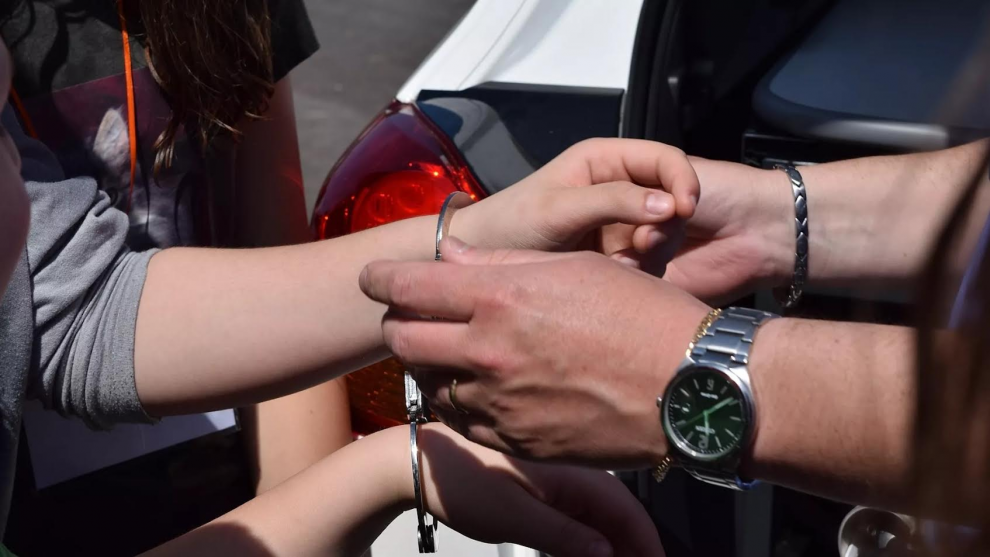WALES has become the first UK nation to protect innocent children in care from being handcuffed or restrained when being transported between care settings, under landmark new regulations recently introduced by the Welsh Government.
The Senedd has published the Reducing Restrictive Practices Framework (RRPF), its latest framework to protect vulnerable children from harmful handcuffing and restraint practice. This not only makes Wales the only nation in the UK to recognise the need to address the brutal but little-known issue of the use of physical restraint against vulnerable children during transportation, but also take steps to end this brutal practice and protect vulnerable children in Wales from restraint.
Setting expectations on how children should be treated across childcare, education, health and social care environments, the RRPF has been created by the Welsh Government to tackle what other nations are yet to: the use of restraints such as handcuffs, leg ties and physical force. The RRPF stipulates that when secure transport services are commissioned by local authorities in Wales, the requirement to operate in line with the Framework must be included in the terms of the contract. This should include a requirement that the secure transport provider report any use of restrictive practices, during the transport of an individual.
The new RRPF includes a specific section for such secure transportation settings, stating that ‘Welsh Ministers are clear that it is not appropriate to use handcuffs of any kind during such journeys’. It also stipulates that ‘Senior leaders should have knowledge of the range and extent of restrictive practices that are used within the organisation. There should be a system for collecting this information across the whole organisation and for each setting.’
The Hope instead of Handcuffs campaign has been calling for instances of restraint against looked-after children in private transport to be reported to the proper authorities, as well as an end to the handcuffing, restraining or caging of children, except when there is considerable risk of harm to themselves or others. The ultimate goal of the campaign is for such Frameworks to become statutory guidance across the UK.
The issue of physically restraining vulnerable children, including innocent children in care, is rampant but very rarely heard of, due to a lack of transparency across the children’s welfare sector. A private company which, for example, transports children to new foster placements or care homes can use handcuffs on a child but has no obligation to report it. These are innocent but vulnerable children who have not been accused of a crime and who are not in the criminal justice system.
A recent survey by the Independent Children’s Homes Association found that 25% of transportation providers hired by local authorities to move care experienced children and young people, reported the use of restraint while in their care.
Emily Aklan, a children’s rights campaigner, and leader of the ‘Hope Instead of Handcuffs’ campaign which has been fighting for the use of handcuffs to be banned during secure transportation, commented:
“We are delighted that the Welsh Government has acknowledged the importance of tackling the issue of restraint. Year on year we have seen an increase in untrained, unregulated private transportation companies pop up and transporting the most vulnerable young people.
“With an utter lack of transparency, children who are already traumatised are subjected to the anguish of being treated like criminals, simply because they’re in the care system. I’m thrilled that Welsh politicians are recognising that children in care need to be protected. I sincerely hope other nations follow Wales’ example and we are able to finally put a stop to restraint in the transportation of young people.”
Baroness Wilcox of Newport, Shadow Front Bench Spokesperson for Wales, added: “Wales has long been a leader in the protection of children’s rights, and this new Framework is a leading piece of policy to address an issue which has been swept under the rug for far too long. As we clarified with the smacking ban which came in this year, physical interventions have absolutely no place on children. I hope that this becomes a legal requirement in Wales, and that other nations follow our example in giving children the same rights as adults.”
Julie Morgan MS, Deputy Minister for Social Services, said: “The changes we have made to the Reducing Restrictive Practices Framework are a hugely important step forward in our aim to reduce restrictive practices across all settings and ensure that they are only used as a very last resort and certainly never as a matter of routine. By encouraging responsible procurement and strengthening the guidance around data collection and reporting, the changes we have made to the Framework will help us to better promote and protect the physical and mental wellbeing of vulnerable children and young people in Wales.”














